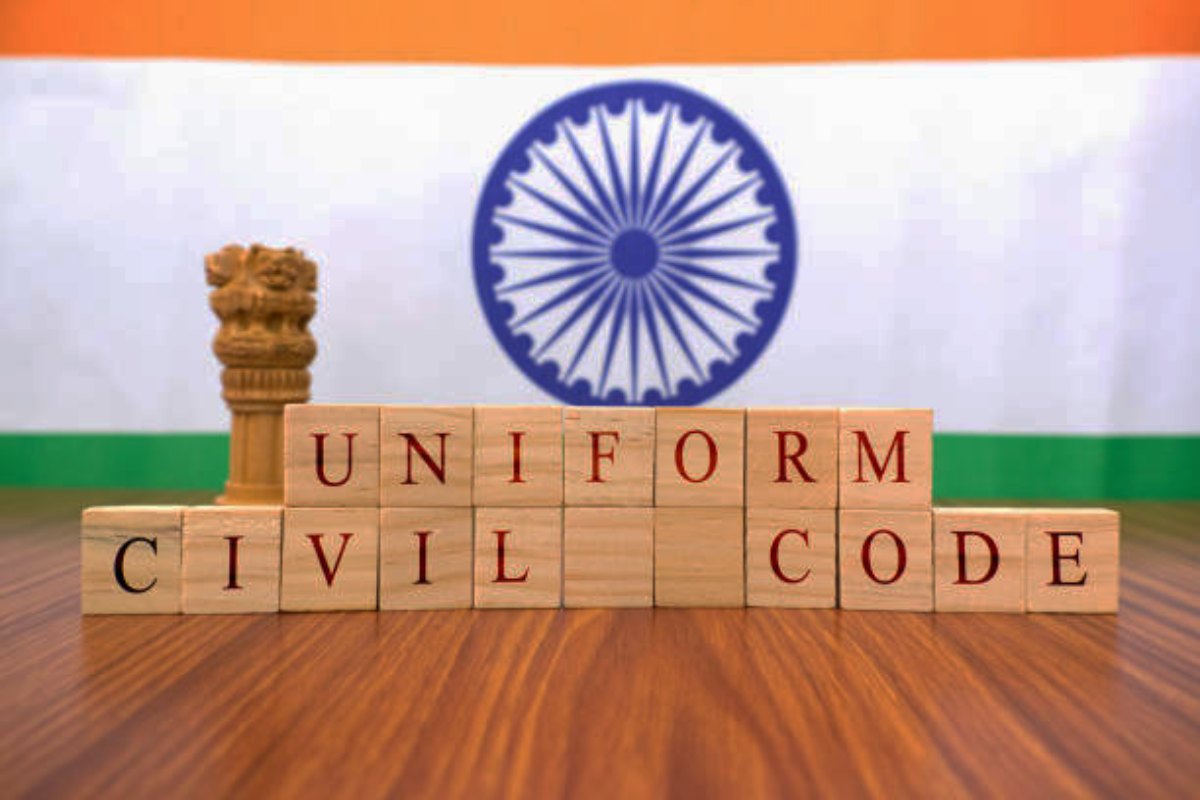Union Budget a boon for all sections: Haryana Minister
Haryana's Public Works Minister Ranbir Gangwa was all praise for the Union Budget for the financial year 2025-26, presented by Union Finance Minister Nirmala Sitharaman.
The concept of a Uniform Civil Code (one civil law for the whole country) is gaining momentum. This follows Prime Minister Narendra Modi’s Independence Day speech this week.

[Photo : iStock]
The concept of a Uniform Civil Code (one civil law for the whole country) is gaining momentum. This follows Prime Minister Narendra Modi’s Independence Day speech this week. His firm commitment against laws that divide the country and his call for a secular UCC further underscore the issue’s importance. Article 44 of the Constitution calls for a Uniform Civil Code for all citizens.
Despite the codification of Hindu laws in 1956, a consensus on the UCC has yet to come, with diverse religious communities following distinct personal laws. The UCC prevails in several countries, including France, the United Kingdom, the United States, and Australia. These laws were created to bring different legal systems together and promote fairness. In Kenya, Pakistan, Italy, South Africa, Nigeria, and Greece, religious or cultural factors often influence legal systems that do not have a UCC. The UCC is a colonial legacy. In 1835, the then-British government proposed making Indian law more uniform. India currently has different personal laws for Hindus, Muslims, Christians, and Parsis.
Advertisement
No common law applies regarding family matters like marriage, divorce, inheritance, and adoption. The UCC is one of the three core agendas of the BJP. The reference in the PM’s Independence Day speech on Thursday signals that it will be a primary focus in his third term. However, it’s important to note that the UCC has turned into a political matter rather than a legal one. Political opponents led by the Congress and other parties that call themselves secular, and even some BJP, allies oppose it.
Advertisement
Implementation of a UCC has yet to reach a consensus for several reasons. It is because of the issue’s complexity, the need for agreement among different religious groups, and the political challenges. Currently, laws for specific religious and caste groups are based on customs and ancient texts for Hindus and Muslims. While framing the Constitution, India’s first Prime Minister, Jawaharlal Nehru, said, “I do not think that at the present moment, the time is ripe for me to try to push it (UCC) through.” If only the framers of our Constitution had decided on the issue, the problem would not exist today. Different Indian communities have their own civil laws, while criminal laws apply to everyone. This diversity complicates the UCC implementation.
The BJP, led by Modi, believes a modern nation should not have different laws for different communities. There are many arguments supporting the UCC. In a diverse country like India, it is crucial to have one law for everyone. It would reduce the potential for political parties to exploit religion. All citizens will get equal protection, removing caste and religion-based laws. It would empower women by ensuring that religious rules do not determine their rights. Many existing personal laws violate human rights, The UCC is not against secularism and does not limit the freedom of religion guaranteed by Articles 25 and 26. These potential benefits of the UCC inspire optimism about its implementation. The UCC has turned into a political matter rather than a legal one. Supporters and opponents argue on both sides. Opponents, led by the Congress and other parties, are against it. Vote bank politics is also involved. Muslims and other minorities do not favour it, although some Islamic countries have adopted a common law for all.
The Supreme Court has consistently emphasised the importance of a UCC. In 1985, the Apex court noted that a UCC would maintain national unity. In 1995, the Court recommended a single law for all citizens. In 2019, the Modi government expressed its commitment to the UCC to the Apex Court. The Court’s decisions, such as outlawing Triple Talaq, have significantly impacted the need for the UCC, providing gender justice and setting important precedents. Some people oppose a single code. They claim creating a single set of rules for all communities is challenging for various reasons. These include widespread misinformation, political oneupmanship, and concerns about infringing on religious and cultural rights. Implementing a UCC would be a step toward eliminating gender discrimination in personal laws.
The BJP recently implemented a Uniform Civil Code in Uttarakhand. Gujarat and Assam are considering adopting a UCC. Goa, a former Portuguese colony, had followed the UCC based on Portuguese law since 1867. However, Kerala has objected to the UCC in its legislature, and some BJP allies oppose it in tribal-dominated Northeastern states. The UCC is crucial as it aims to provide one law for everyone in a secular country. It has been 78 years since Independence, and we need to seriously consider implementing it. The Prime Minister should convene meetings with political parties and create a consensus
Advertisement